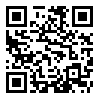Received: 2014/08/9 | Accepted: 2014/08/25 | Published: 2014/11/5
Rights and permissions
2- immunoregulation research center Shahed university ,
3- tehran university, Enqlab square, Tehran university, Medical faculty, Immunology department
4- Bahonar university, Phisiology department, medicine faculty,Bahonar university of Kerman
5- Shahid Beheshti university, Pathology Lab. Modarres hospital
6- Shahid Beheshti university, Vital Statistics department,Paramedics faculty,Shahid Beheshti university,Tehran,Iran.
Aims: Recurrent respiratory infections are one of the clinical protests of those with delayed complications of exposure to mustard gas. Studies Show that inflammatory mediators have been changed in serum, sputum and Broncho-Alveolar Lavage (BAL) samples of chemical victims. Regarding TLR4 importance in inflammation and response to infections, this study aimed to investigate TLR4 gene expression in chemical victims' lung tissues.
Materials & Methods: In this case-control study, paraffin blocks of lung tissue samples from 28 veterans exposed to mustard gas with delayed pulmonary complications (cases group) and 9 pulmonary samples from the subjects with no mustard exposure (controls group) from the archive of Hazrat-e-Rasool and Mahdieh hospitals during 2013-2014 were collected. Slides samples from lung paraffin blocks stained with Hematoxylin and Eosin (H&E) were prepared. Real-time PCR was used to evaluate RNA expression. ΔΔCT median was used to measure the relative genes expression. Comparison of data was done using Mann-Whitney test by SPSS 21 software.
Findings: In case group, 12 patients (42.8%) were diagnosed with bronchiolitis obliterans, 8 patients (28.6%) with respiratory bronchiolitis and 8 patients (28.6%) with other disease and in control group, 4 patients (44.4%) with bronchiolitis obliterans, 1 patient (11.2%) with respiratory bronchiolitis and 4 patients (44.4%) were diagnosed with other diseases. Case group ΔΔCT mean was 5.28±3.58cyc and that of control group was 5.81±3.29cyc that gad no significant difference (p>0.05).
Conclusion: As there is pathological similarity in lung tissues of both groups, it seems that TLR4 gene expression undergoes same changes.





